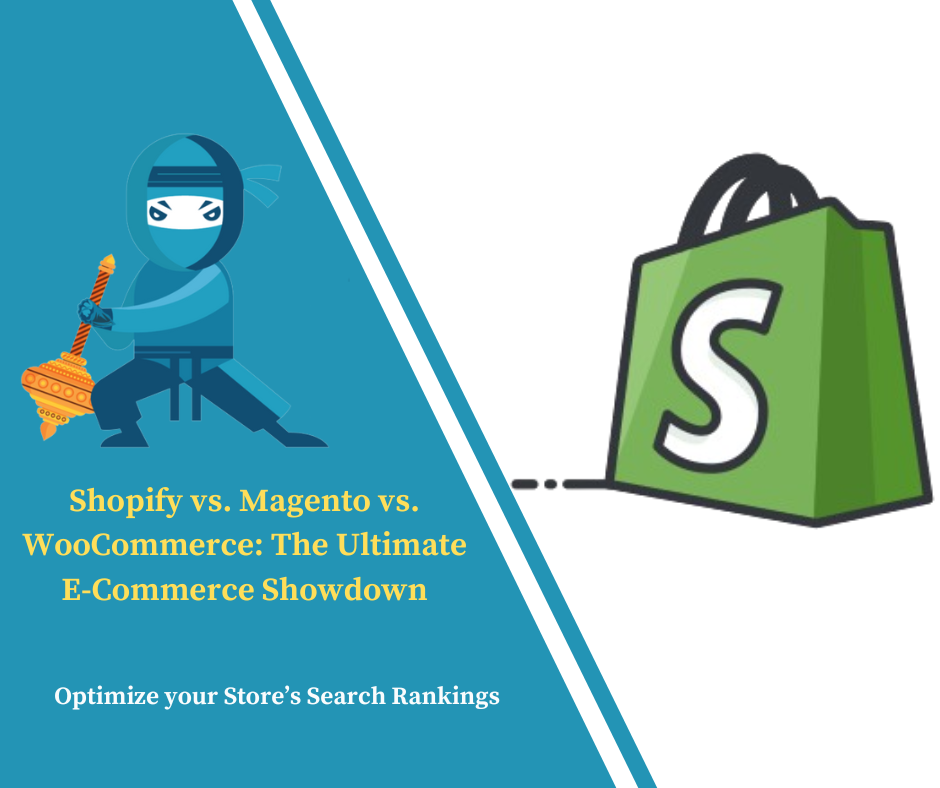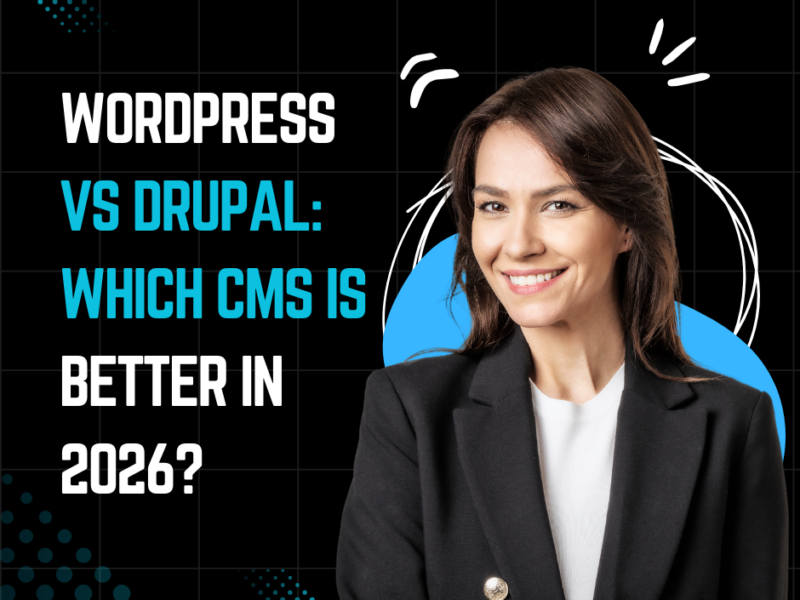Shopify vs. Magento vs. WooCommerce: The Ultimate E-Commerce Showdown
In the ever-evolving world of e-commerce, choosing the right platform can be the difference between online success and failure. With so many options available, three giants consistently rise above the rest: Shopify, Magento, and WooCommerce. Each platform offers unique features, flexibility, and pricing structures, but deciding which one is right for your business requires a closer look.
In this guide, we’ll dive deep into Shopify vs. Magento vs. WooCommerce, comparing their strengths and weaknesses. By the end, you’ll have a clearer idea of which platform fits your needs and can propel your e-commerce venture to the next level.
Shopify: Simple, Scalable, and All-in-One
Shopify is one of the most popular e-commerce platforms globally, known for its ease of use and all-in-one functionality. Whether you’re a small business owner or a large-scale retailer, Shopify simplifies setting up and managing an online store.
Shopify offers a comprehensive solution, handling everything from hosting to security. Its user-friendly interface makes it a top choice for entrepreneurs who want a hassle-free setup. You can choose from numerous templates, all of which are mobile-optimized, and integrate apps to enhance your store’s functionality.
Shopify also offers 24/7 customer support, which is a significant advantage for those with limited technical expertise. With built-in payment processing and the ability to manage shipping, inventory, and taxes, it’s a complete package for new and growing businesses.
Pros:
Ease of Use: Shopify’s user-friendly interface makes it ideal for beginners. You can easily set up your store, add products, and manage sales with no technical expertise.
Fully Hosted: Shopify handles all the technical aspects, including hosting, security, and software updates, so you can focus on running your business.
Built-in Payment Gateway: Shopify comes with its payment gateway (Shopify Payments), though you can integrate third-party options.
Themes and Customization: Shopify offers a wide range of beautiful themes, allowing you to customize your store to reflect your brand’s personality.
App Store: Shopify’s App Store offers numerous extensions to enhance your store’s functionality.
Cons:
Transaction Fees: If you don’t use Shopify Payments, transaction fees can add up.
Limited Customization: While Shopify is easy to use, its customization options are somewhat limited compared to open-source platforms like Magento and WooCommerce.
Also read: Squarespace vs. WordPress: Which is the Best Platform for Your Business?
Who Should Use Shopify?
Shopify is perfect for small to medium-sized businesses that prioritize ease of use and don’t want to deal with the technical aspects of running an e-commerce store. If you’re looking for an all-in-one solution with minimal setup time, Shopify is a strong contender.
Magento: A Developer’s Dream with Unmatched Customization
When it comes to sheer customization, Magento stands in a league of its own. Built for developers and larger businesses, Magento offers unlimited flexibility and is ideal for those looking to scale an enterprise-level store.
Magento is an open-source platform, meaning developers can tweak every aspect of the store. It’s best suited for businesses with a dedicated team of developers, as it requires advanced technical knowledge to set up and maintain. However, this complexity also means you have full control over how your store looks and functions.
Magento excels in features, offering a vast array of extensions to enhance functionality. You can manage multiple stores, offer international shipping, and handle complex product catalogs with ease. While it’s not the cheapest or easiest platform, the possibilities for customization make Magento a powerhouse for larger businesses.
Pros:
Scalability: Magento is ideal for large businesses with complex needs. It can handle thousands of products and high-traffic volumes without breaking a sweat.
Customization: Being open-source, Magento allows for extensive customization. You can modify every aspect of your store’s functionality and design.
Advanced Features: Magento offers a wide range of built-in features such as multi-store management, advanced reporting, and customer segmentation.
SEO Friendly: Magento comes with robust SEO features, helping your store rank higher in search engine results.
Cons:
Technical Knowledge Required: Magento is not for the faint of heart. Unless you have a team of developers or are technically inclined, you might struggle with the setup and maintenance.
Cost: While the open-source version of Magento is free, running a Magento store can get expensive. You’ll need to invest in hosting, security, and potentially a development team.
Who Should Use Magento?
Magento is best suited for large, enterprise-level businesses with complex needs and the resources to manage the platform’s technical demands. If scalability and advanced customization are priorities, Magento is the way to go.
WooCommerce: The Flexible Option for WordPress Lovers
If you’re already familiar with WordPress, then WooCommerce might be the perfect fit for your e-commerce needs. As a WordPress plugin, WooCommerce combines the flexibility of WordPress with powerful e-commerce capabilities, making it a top choice for businesses of all sizes.
WooCommerce integrates seamlessly with WordPress, making it an excellent option for users who already have a WordPress site or are comfortable with the platform. It offers extensive customization through themes and plugins, and because it’s open-source, the possibilities for tailoring your store are nearly endless.
While WooCommerce is free to use, you’ll need to handle hosting, security, and payments, much like Magento. However, the ability to start small and scale your business as it grows makes WooCommerce a flexible and cost-effective option for many.
Pros:
Flexibility: WooCommerce integrates seamlessly with WordPress, allowing for a highly customizable store.
Cost-Effective: The WooCommerce plugin is free, though you’ll need to pay for hosting, themes, and extensions.
Wide Range of Plugins: Being part of the WordPress ecosystem, WooCommerce has access to thousands of plugins, enabling you to add virtually any feature you want to your store.
SEO Friendly: Like WordPress, WooCommerce is great for SEO, helping you attract more organic traffic.
Cons:
Technical Skills Needed: WooCommerce isn’t as beginner-friendly as Shopify. You’ll need some technical knowledge to manage hosting, security, and plugin updates.
Costs Can Add Up: While the base plugin is free, you’ll likely need to purchase various extensions and pay for hosting, which can increase costs over time.
Who Should Use WooCommerce?
WooCommerce is perfect for small to medium-sized businesses already using WordPress. If you’re looking for a customizable, cost-effective platform and don’t mind handling some technical tasks, WooCommerce is a strong option.
Shopify vs. Magento vs. WooCommerce: Which Should You Choose?
Now that we’ve broken down the strengths and weaknesses of Shopify, Magento, and WooCommerce, the question remains: which is best for you?
Choose Shopify if you want a hassle-free, all-in-one solution with excellent support and don’t mind paying for the convenience. It’s perfect for entrepreneurs who need to get up and running quickly without delving into the technical side of things.
Choose Magento if you have a larger business or plan to scale significantly. With unmatched customization and enterprise-level features, it’s the go-to for businesses that require flexibility and have a development team to manage the platform.
Choose WooCommerce if you’re already familiar with WordPress or want a more budget-friendly option with room to grow. It’s an excellent choice for small to medium-sized businesses that want to leverage the flexibility of WordPress.
Feature Comparison: Shopify vs. Magento vs. WooCommerce
1. Ease of Use
Shopify: Highly user-friendly, ideal for beginners.
Magento: Complex and technical, suited for experienced users or larger businesses with development teams.
WooCommerce: Requires some technical expertise but integrates well with WordPress.
2. Customization and Flexibility
Shopify: Limited customization but sufficient for most small to medium businesses.
Magento: Offers the most flexibility and customization options.
WooCommerce: Highly customizable, especially for WordPress users.
3. Cost
Shopify: Monthly fees start at $29, plus transaction fees if not using Shopify Payments.
Magento: Free for the open-source version, but additional costs for hosting, development, and extensions.
WooCommerce: Free plugin, but you’ll need to pay for hosting, themes, and plugins.
4. Scalability
Shopify: Scales well for small to medium businesses.
Magento: Ideal for large, enterprise-level businesses with high traffic and complex needs.
WooCommerce: Scales well with the right hosting and optimization but may require more effort.
5. SEO
Shopify: Good SEO features, though not as robust as Magento or WooCommerce.
Magento: Offers the best built-in SEO features.
WooCommerce: Excellent for SEO, especially with WordPress’s capabilities.
FAQ
Can I use Shopify without any coding knowledge?
Yes, Shopify is designed for users without coding skills. It offers a drag-and-drop interface, making it easy to set up a store.
Does Shopify handle payment processing?
Shopify has its payment gateway, Shopify Payments, but it also integrates with many third-party payment processors.
Is Magento suitable for small businesses?
Magento is better suited for larger businesses or those with technical expertise. Small businesses without a developer may find it overwhelming.
How customizable is Magento?
Magento is incredibly customizable, allowing you to modify every aspect of your online store, from design to functionality.
Is WooCommerce suitable for beginners?
WooCommerce is more beginner-friendly if you’re familiar with WordPress. If you’re new to both WordPress and e-commerce, there might be a learning curve.
Is WooCommerce free?
WooCommerce is free to use, but you’ll need to pay for hosting, security, and any premium themes or plugins you want to add.
Conclusion
The choice between Shopify, Magento, and WooCommerce ultimately depends on your business needs, technical expertise, and budget. If you’re looking for simplicity and ease of use, Shopify is your go-to platform. For large businesses seeking extensive customization, Magento is unmatched. Meanwhile, WooCommerce is an excellent option for those who want flexibility and are familiar with WordPress.Each platform has its strengths and weaknesses, but with the right strategy, any of these options can help you build a successful online store.








